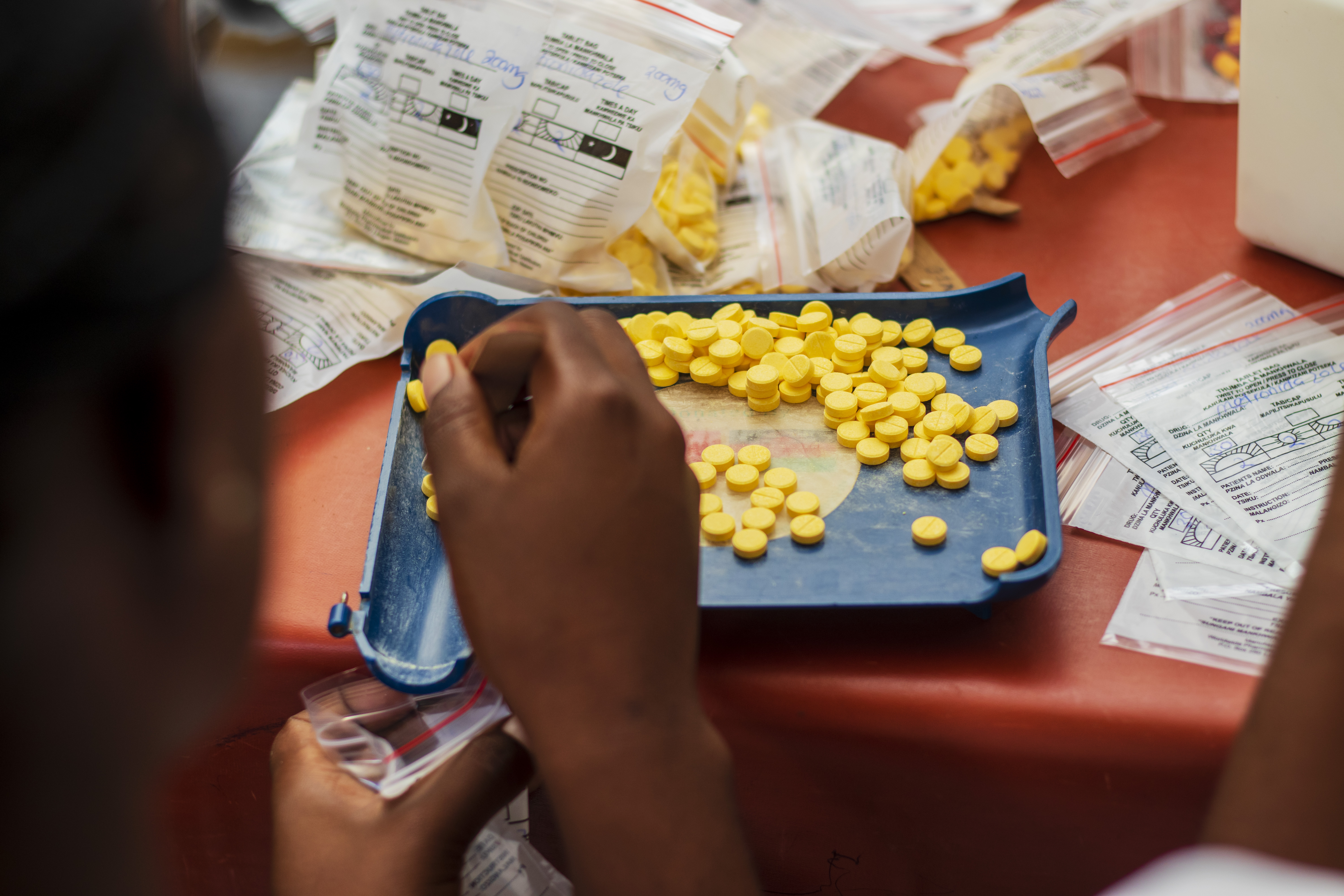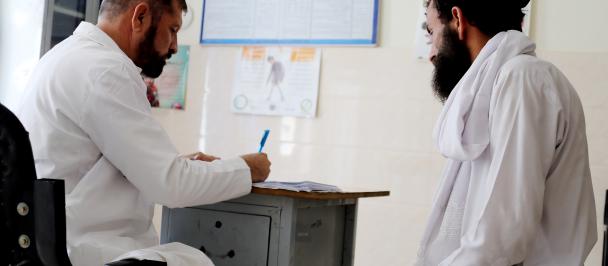Electronic Health Information Network transforming Malawi’s Health Supply Chain
December 8, 2022

Globally, public health systems face challenges in the management of medicines and medical supplies. Increased levels of transparency and accountability in medicine transactions is therefore critical in helping prevent corruption while ensuring needed medicines are available at service delivery points to be accessed by patients.
Digital health is progressively becoming a key foundation to attaining universal access to health services and transforming health service delivery in Malawi.
To showcase its full commitment to the digital transformation agenda in the health sector and beyond, UNDP Malawi is supporting the Ministry of Health in deploying innovative technologies to digitally track and trace the movement and use of medicines and medical supplies at health facilities in the country.
The Electronic Health Information Network (eHIN) initiative is leveraging on technology to help increase access and quality of health service delivery by providing a transparent platform where medicines and medical supplies can be stored, moved, and consumed with full accountability.
Initiated in 2020, ‘eHIN’ is an easy-to-use mobile application and web-based platform that has the capabilities of tracking medicines and vaccines by batch and expiry, bringing real-time visibility of medicines and medical supplies at all levels.
It has been two years since the deployment of the eHIN system, and the project is already witnessing significant results, with increased visibility and transparency of supply chain transactions of medicines and medical supplies, making it easier to investigate and determine cases of malpractice, diversions, and theft.
Ntchisi District Hospital is one of the DHOs and facility pharmacies, currently excelling in making use of the eHIN system within its dispensing points. From the Pharmacy dispensaries to the in-patient wards, the system has been a game-changer for the district. The system collects and transmits the relevant data in real-time, which also helps to simplify and speed up the process of reporting on medical commodities in stock and in need of resupply.
As The District Medical Officer, Dr. Reuben Nanjira explains, by incorporating the eHIN system in their operations, the hospital has made a saving of 24 million kwacha (approximately US$24,000) in just one year, while ensuring effective use of the district’s drug budget of 333 million kwacha (approximately US$333,000)
“Our results have shown that the eHIN system is helping ensure that we are more efficient in how we spend our resources and procurement of drugs. It has also strengthened transparency as it records what every patient who visits the facility has been given and who dispensed each item. This makes it easier to follow up and has helped ensure that medical workers are taking more ownership and are more efficient in keeping track of all records” said Dr. Nanjira.
Ntchisi DHO is now leading as an example and stands as a learning hub for other facilities to appreciate how the team is working collaboratively in using the eHIN system and ensuring the buy-in of the responsible officers within the facility.
The Head of the Pharmacy for Ntchisi Hospital, Mr. Bennet Kalebe adds, “We used to do most of the work manually, and there was a lot of paperwork and challenges in keeping track of the records and audit trails. Now that our systems are digital, there is a lot more efficiency and it is easy to track our records. Ntchisi has also greatly improved its stock of essential medication, thereby improving the availability of drugs. The resources saved can therefore be used to procure other essential items and services that would further improve our facilities.”
With financial support from development partners including UNDP, Norad, Government of Japan, SDG-AF, the eHIN Initiative is being implemented by the Ministry of Health and Central Medical Stores and has since its inception, trained 5,000 health workers deployed at over 2,000 health service delivery points in the country.
In its next phase, eHIN will continue to strengthen its implementation and plans to roll out to all 8,500 identified service delivery points in Malawi

 Locations
Locations


